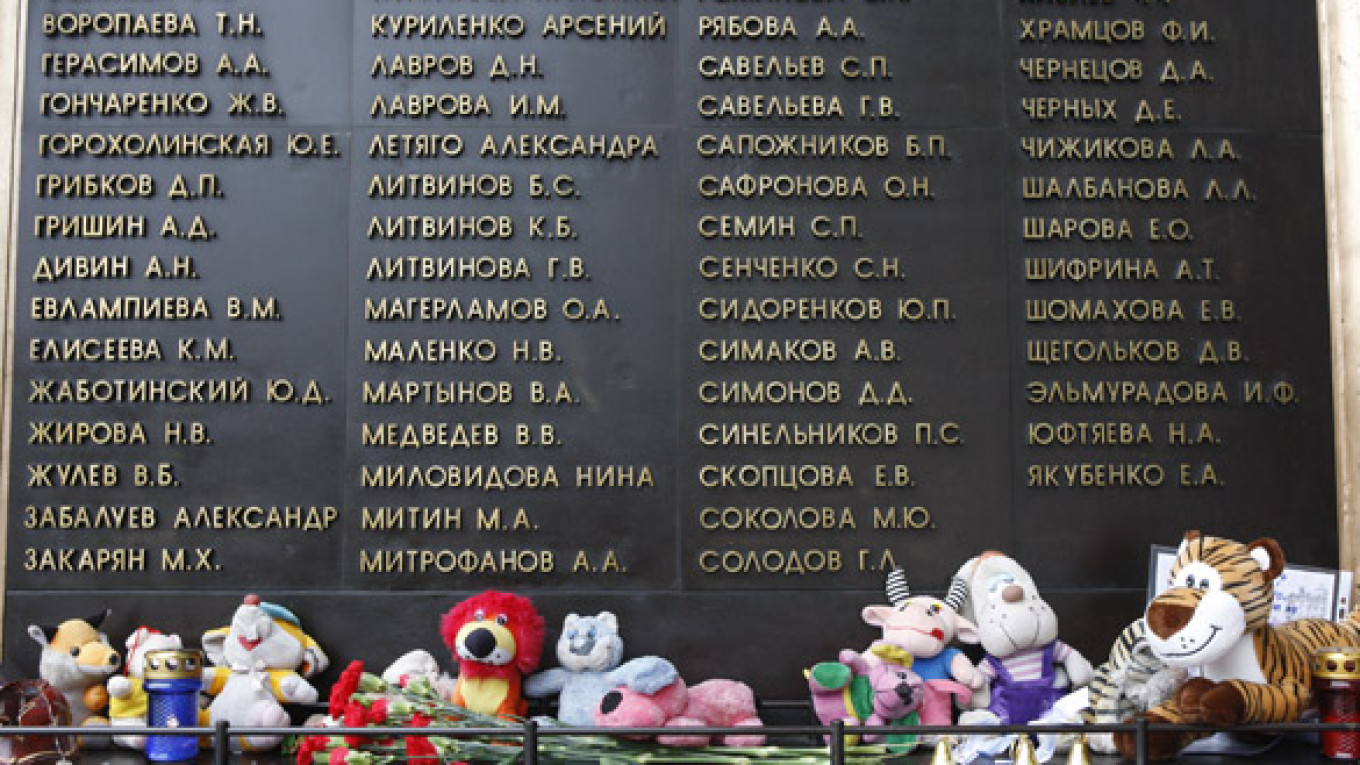On the seventh anniversary of the Dubrovka theater siege, Justice Minister Alexander Konovalov said Monday that his ministry was working on legislation to increase compensation for those injured or killed in terrorist attacks “in accordance with the practice of the European Court of Human Rights.”
The law currently obliges regional authorities to provide compensation to victims and their families, and the amount is rarely more than several thousand dollars per person.
In comparison, victims of the 2004 bombings in Madrid were ordered compensation of 30,000 euros to 1.5 million euros ($45,000 to $2.2 million).
The new Russian law would transfer at least some of the responsibility for payments to the federal government, and the amount of the compensation would be close if not equal to the European level, Konovalov said. “Mathematics can’t be applied to the sum of the compensation. Each case is unique and tragic because it is hard to evaluate such suffering,” Konovalov said. “Yet, we are going to orient ourselves to the practice of the European Court of Human Rights. It is already developed.”
Konovalov said a draft bill was being discussed by various government agencies, and the most complicated negotiations were expected to take place with the Finance Ministry, which has to sign off on all federal spending.
Relatives of hostages who died in Dubrovka were mortified with the 50,000 to 100,000 rubles ($1,730 to $3,460) offered by Moscow city authorities and sued. But the courts sided with city officials, who maintained that it was the federal government that was responsible for the war in Chechnya and its consequences. Most of the 129 hostages who died were killed by a knockout gas that special forces pumped into the theater to free the hostages from their Chechen captors.
Hundreds of people paid their respects to the dead Monday at a monument at the theater, laying flowers and stuffed animals.
A Message from The Moscow Times:
Dear readers,
We are facing unprecedented challenges. Russia's Prosecutor General's Office has designated The Moscow Times as an "undesirable" organization, criminalizing our work and putting our staff at risk of prosecution. This follows our earlier unjust labeling as a "foreign agent."
These actions are direct attempts to silence independent journalism in Russia. The authorities claim our work "discredits the decisions of the Russian leadership." We see things differently: we strive to provide accurate, unbiased reporting on Russia.
We, the journalists of The Moscow Times, refuse to be silenced. But to continue our work, we need your help.
Your support, no matter how small, makes a world of difference. If you can, please support us monthly starting from just $2. It's quick to set up, and every contribution makes a significant impact.
By supporting The Moscow Times, you're defending open, independent journalism in the face of repression. Thank you for standing with us.
Remind me later.


